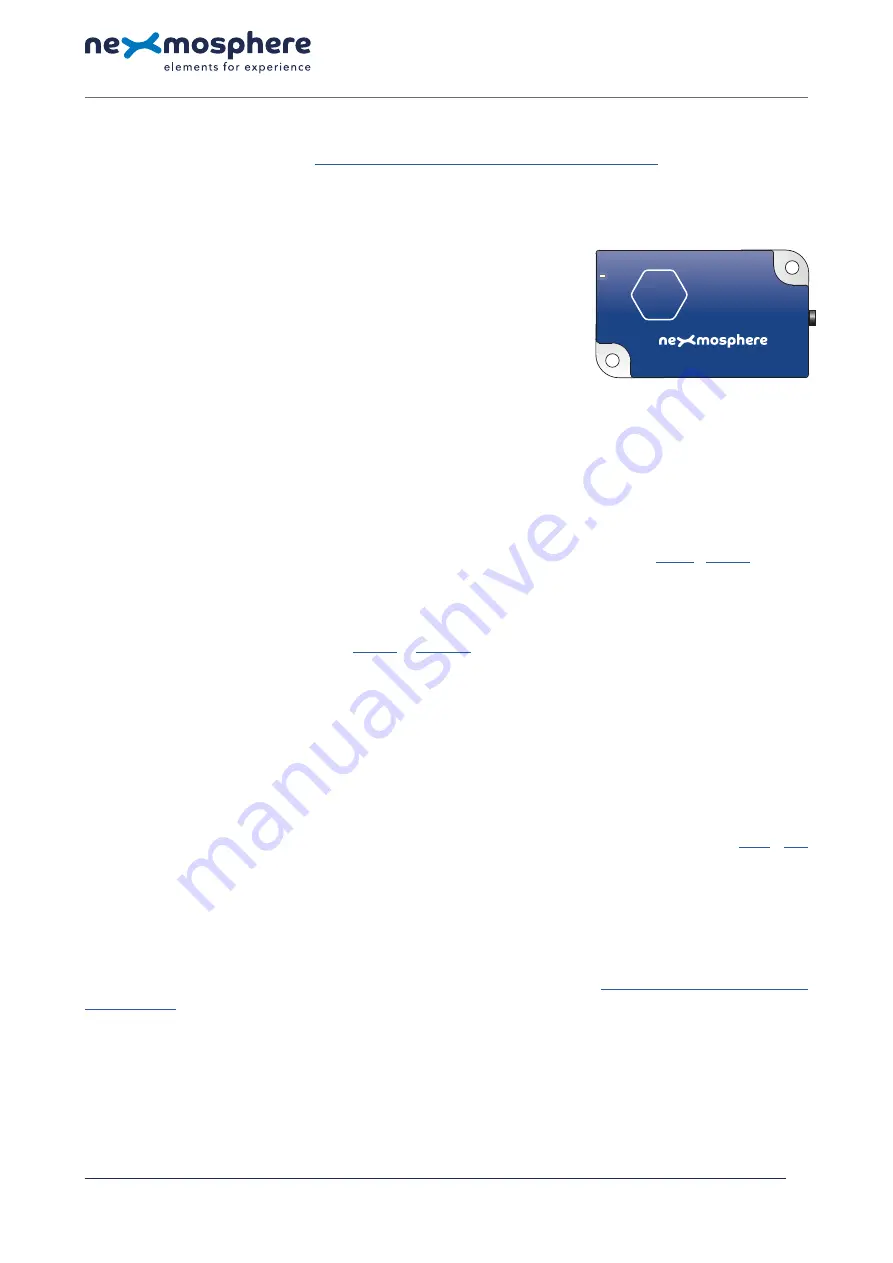
Xperience platform
All of Nexmosphere’s controllers are built on the same platform principles. If this is your first time using a Nexmosphere
controller, we recommend to first read
https://nexmosphere.com/technology/xperience-platform/
to learn the basics about
our platform and its terminology.
XN-180
The XN-180 is an Xperience controller with 8 X-talk interfaces:
1.
X-talk interface 001
5.
X-talk interface 005
2.
X-talk interface 002
6.
X-talk interface 006
3.
X-talk interface 003
7.
X-talk interface 007
4.
X-talk interface 004
8.
X-talk interface 008
USB.
5V Power input (micro-USB connector)
API.
API interface (3.5mm Jack connector)
LED.
White status LED
Hardware setup
1.
Connect one or more Elements to any of the 8 X-talk interfaces.
2.
Connect a serial cable* to the API interface and to a 3rd party device** (e.g. Digital Signage Player or PC).
3.
Connect the micro-USB cable to a 5V power supply.
4.
Wait until the white status LED stops blinking. This lasts about 5 seconds.
*
Nexmosphere has 2 cables available which are compatible with the XN-180:
CA-JJ9B
(3.5mm jack to 3.5mm jack) and
CA-JD9B
(3.5mm jack to DB-9).
*
In case the 3rd party device doesn’t have a fixed serial port, we recommend using a USB-to-Serial adapter, for example from
Software setup for testing (Terminal)
Typically, the XN-180 controller is connected to a 3rd party device, such as a Digital Signage Player, on which CMS software is installed which has built-in
functionality for sending and receiving Serial Events. However, if you want to do a first test on a PC or Mac, follow the instructions below:
1.
Download a terminal program. For example
or
2.
Open the Terminal program and go to settings. Choose the COM port to which the XN-180 controller is connected*.
3.
Set the COM port settings to the following values
Baudrate
115200
Flow Control
None
Parity
None
EOL
CR+LF
Data
Bits 8
Protocol
ASCII
Stop
Bits 1
4.
Set the COM port to “Open”.
The controller is now ready for use.
5.
When sending consecutive API serial commands to the XN-180 controller, place a 50mS delay between each command.
*
In case the XN-180 controller is connected via a USB-to-Serial adapter, typically this is the highest available number in the COM port drop-down setting. In
case the USB-to-Serial converter is not recognized as a COM port by the 3rd party device, one of the following drivers needs to be downloaded:
Functionality
The XN-180 runs our API which provides serial output when a specific sensor Element is triggered (for example a pick-up,
or -motion sensor or touch button) and provides control over output Elements (for example controlling LED strips) via serial
input commands. These API serial commands are typically used to create interactive Xperiences for Digital Signage.
The complete API Manual and additional helpful documents can be found on
https://nexmosphere.com/support-
. To get you started, we’ve included some starter examples of our Elements and the corresponding API serial
commands on the following pages.
3rd party devices and software
This Quick Start Guide offers a generic explanation of the setup and operation of the XN-180 Xperience controller. It does
not cover information on how to integrate the Controllers, Elements and their API triggers in specific 3rd party devices or
software. We have manuals available with step-by-step instructions on how to integrate Nexmosphere products with the
products of our hardware, -and software partners. You’ll find these on the support and partner pages of our website.
N ex m o s p h e re
H i g h Te c h C a m p u s 1 0 ( M μ b u i l d i n g )
5 6 5 6 A E E i n d h ove n • T h e N e t h e r l a n d s
T
+ 3 1 4 0 2 4 0 7 0 7 0
E
s u p p o r t @ n ex m o s p h e re.c o m
QUICK START GUIDE
XN-180 XPERIENCE CONTROLLER
© 2020 Nexmosphere. All rights reserved. v1.0 / 04-20
All content contained herein is subject to change without prior notice.
1
XN
XN
001 002 003
003
004
008 007 006 005
001 002
1
8
3
6
2
7
4
5
USB
API
LED



